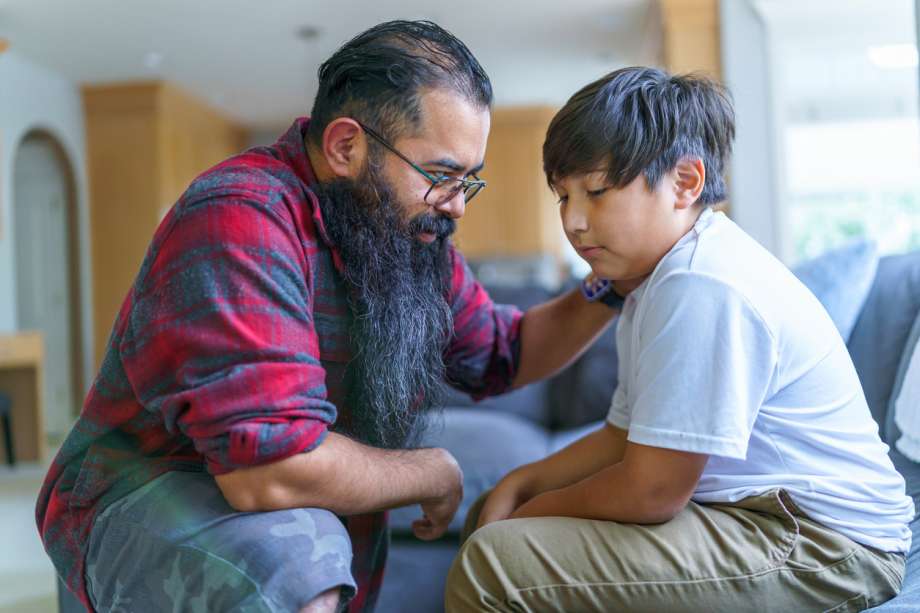The "Just Say No" Fallacy

In this article, you will find:
Tween peer pressure
Tween Assertiveness
Some kids benefit from hearing exactly what they can say to resist peer pressure. Role-playing is a good way to teach your child to say, "I can't—my parents won't let me" and "No, my folks don't want me to do that." Most younger peers and pro-social older ones readily accept such statements.
However, some will consider such statements the mark of a "baby" who has yet to emerge from her parent's shadow and will tease her. Instead, it might help for your tween to say, "No, I'm not interested in doing that," or "My parents don't want me to and I'm tired of them hassling me." Invite your child to use you as the fall guy at any time. What matters is that she finds ways to say "no" to activities and involvements that strike her as wrong or that she isn't ready for. When role-playing, let your child act the part of a peer so you learn about the pressure she is up against and can give her suggestions that apply to the problems she faces. The good news is that most children are glad to have the necessary verbal weapons to withstand peer pressure and make the decisions they know will keep them safe.
A Pound of Prevention
As an enlightened teenager who feels invincible enough to be undaunted by risk, your child will be making life-altering decisions. As you teach about the dangers of drugs, gangs, and sex, help your tween understand why some people go for them anyway. Soon enough, he will be spending time with those people.
Help your tween learn to evaluate and contemplate risks in a more in-depth fashion instead of just telling him to avoid them at all costs. He will need to be able to answer the hard questions when tempted: What are the real risks to me personally? Why say "no" when I want to say "yes"? Why alienate friends and perhaps the love of my life by not going along with the crowd? Help your tween think about the pros and cons of engaging in risky behaviors by discussing the issues that affect him now.
Fact
Teens with a strong religious faith are more able to resist dangerous temptations than the average young person. If your child hasn't been attending organized services, the tween years are a good time to begin. Seek a church or synagogue with an active youth program so she can develop some friendships.
Children who are accustomed to being respected won't take to peers who don't respect them, so allow your youngster to have opinions different from yours, and respect his views even as you expect him to respect yours. For instance, discuss the pros and cons of seat belts. Is it worth the bother and hassle when car accidents are in truth rare? People often emerge from accidents unscathed even though they weren't wearing a seat belt. Whatever his views on the subject, he must still wear a seat belt, of course. Citizens can work to change laws but must not break them, and it's important for him to learn the difference between thoughts and actions. Talk about what he can do if he's in a car with a parent who is breaking the law by speeding or drinking. Is it best to live and let live so everyone does his own thing? Role-play some conversations so your child knows it's acceptable to get out of the car and round up another ride. If he can say "no" to an adult, he'll be more able to say "no" to another child.
Coed parties may be fine if an adult will be present, but coed sleepovers are an invitation to trouble. There's nothing wrong with a tween girl having a boyfriend if it means talking at recess and sitting together at lunch. If they go to the movies, make sure your tween understands that they must go as friends, not as dates. Think carefully before allowing your child to attend school dances. Between the intense social pressure and the sexually stimulating contact of some modern dance styles, it may be better to wait until your tween is an official teenager. Perhaps she can have a party the same night where she can have more wholesome fun.